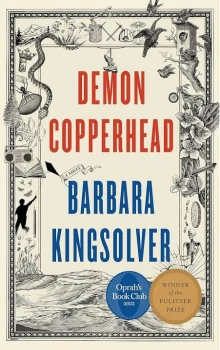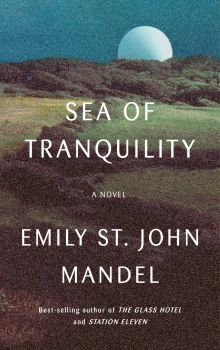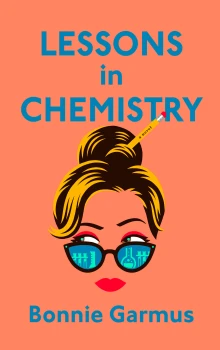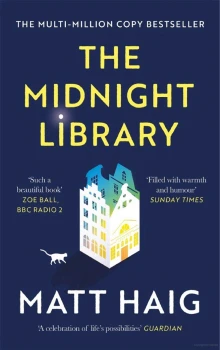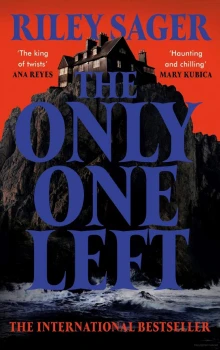At sundown, she begins.
She opens the old laptop, the one she’s scrounged together from parts found on the curb: all those late-night books she’d studied, late at night in all those libraries, put to good use. For the first time she turns on the wi-fi. It is a risk—signals that go out can be traced back. For so long she’s muffled her footsteps, muzzling herself. Now it is time to speak.
Her fingers tap the keyboard, running the program she’s rigged. She sends out the signal and waits, watching for them to connect. To prick up their ears for her commands. The bottle caps she has been making and planting, four weeks’ worth. Everything she’d planned so carefully before Bird had arrived.
She has done the math: one every two blocks, all the way down to the Financial District, nearly all the way up to Harlem. Weatherproof in their little plastic shells, small enough to be concealed in places where they won’t be disturbed for weeks. Even if one were spotted, it wouldn’t be looked at: just a worthless scrap, a piece of litter to be swept away. No one examined the things in the gutters, in the dustpans, in the street cleaner’s bins; those were the things people tried to ignore. By her count, she’s planted two thousand and eleven: how many of them have survived and are working, how many will connect and answer her call?
Ten at first, now fifteen. Twenty-five.
She hadn’t known, at first, what to do with the stories she’d collected. The first wisp of an idea had formed when one of the mothers clasped her hand, her voice trembling. Tell everyone what happened to my girl. Tell it to the world. Shout it from the skies if you can. Later it had crystallized, on a sunny morning in LA, when she looked up and saw it: a cell-phone tower, disguised as an unconvincing tree. Swathed in green leaf-print canvas, right-angled arms held mannequin-stiff. The wrong kind of tree for the climate, an evergreen towering over the palms, head and shoulders higher than the real trees, emitting a faint hum. What kind of messages was it beaming through the air? For a moment she’d closed her eyes and imagined it: all those invisible words made audible, a cacophony of voices crisscrossing the city like a net.
She thinks of it again as she watches the monitor, watching the bottle caps answer her call. Seventy, a hundred, two hundred.
Inside each, a tiny receiver tuned to the precise frequency her computer now emits. And also: a tiny speaker. Reception up to ten miles, Domi had promised her, crystal clear, and you’ll hear it from a block away, at least. Her father had made his fortune on this technology, though he’d surely never imagined it put to this use. One by one they wake, the counter ticking upward. Two hundred and fifty. Three hundred. Each a glowing pinprick on the map, spreading northward from the Battery, freckling Chinatown and Koreatown and Hell’s Kitchen, dotting Midtown to the Upper West Side and beyond. Over five hundred now, the counter still climbing. When it reaches nineteen hundred, it pauses, and she does a quick calculation. Nearly ninety-five percent, a solid A. Wouldn’t her parents be proud.
She lifts the microphone, clears her throat, and across the city, block after block, bottle-cap speakers crackle to life. Picking up the signal she is transmitting. A voice emerging from the knotholes of trees, the undersides of trash cans, cracks in front stoops and behind lampposts: everywhere and anywhere she has wedged a bottle cap in the past month. Hiding unnoticed until this moment, when from that little round cap her voice would spring, surprisingly loud, startling those nearby. In unison, this voice speaking—slightly scratched, as if from wear—all over the city. Only one voice, but speaking the words of many.
It doesn’t have to be live, Domi had said. A recording, maybe. It would be safer. You don’t have to be there. She’d said it gently, as if trying to persuade a stubborn child.
Margaret shook her head. I don’t have to, she said, but I want to.
She couldn’t explain why, but she feels this in her bones: certain things must be done in person. Testifying. Attending the dying. Remembering those who were gone. Some things need to be witnessed. But there was another reason she herself couldn’t quite see, could only sense its presence, the way you sensed a ghost. She had not been there to see her parents die; they had died alone, without her, and she should have been there, to see the man who’d pushed her father and sear his face into her mind; she should have been there by her father’s hospital bed, among the beeping, blinking machines, to kiss him and send him on his way. She should have been there, that next morning, to catch her mother as she fell, perhaps to save her, but at the very least to give her a loving face to focus on as the light in her eyes faded. She could not have articulated this, but she could feel the shape of this wrong inside her, the way she could feel her own heart kettle-drumming in her chest. They had deserved that kind of caretaking and no one had given it to them and she would, in this small way, give that solemn witnessing and hand-holding to each of the stories she was about to tell.
Alone in the darkened brownstone, she opens the first of the notebooks, a library of stories she has gathered and borne on her body for the past three years. The words of those she’s spoken to, faithfully jotted down in microscopic print, entrusted to her to keep and to safeguard and to share. She begins to read the words these families have whispered, letting them speak through her mouth. One by one, child by child, she tells each story.
The outlines first. Only a first name, nothing that could betray anyone: Emmanuel. Jackie. Tien. Parker. The city they’d lived in: Berkeley. Decatur. Eugene. Detroit. Their age, when they’d been taken: Nine. Six. Seven and a half. Two.
And then, shading in those outlines: the contours and textures of a particular life lived, the details that made each child themselves. The smallest and most human moments, that explained who they were. Keep to the small.
His smile was so sudden. One moment he’d be laughing, happy. The next, instantly stern. Even playing peekaboo, he took it so seriously. As if he knew even then we might vanish, with the twitch of a blanket, and disappear.
She wouldn’t eat any food that had corners. I had to cut her sandwiches into circles. For months, I lived off the cut-off corners she left behind.
At first people stop, baffled. Where is this voice coming from? They glance over their shoulders, searching for the source. Someone behind them? Behind that tree? But no, there is no one. They are alone. And then they begin to listen; they can’t help it. One story, then another. Then another. They pause and soon they are not alone any longer, there are clusters of them, then dozens, so many people standing silently together, listening. These steely New Yorkers—people who could ignore a troupe of breakdancers spinning around subway poles, who could swerve around a swarm of camera-toting tourists or a man dressed as a giant hot dog without losing speed or focus, without even a sideways glance—they paused, listening, and the teeming rivers of the city’s streets thickened and clogged. The voice comes from all around them, as if from the air itself, and though later a few of them would say it sounded godlike, from the sky, most of those who heard it would insist on the exact opposite: it felt like a voice inside them, speaking somehow both to them and from them, and though it was speaking the stories of strangers, people they had never met, children who were not their own, pain they had not experienced, it was somehow speaking not just to them but with them, of them, that the stories it told, one after the other in a seemingly endless stream, were not someone else’s but one larger story of which they, too, were a part.
The night they took you I was angry with you, you’d scribbled on the wall with a permanent pen, you’d scribbled on your hands and your face and part of the carpet, too, angry black scrawls. I’d smacked you and you’d gone to bed crying, and I was scrubbing the wall with a sponge when the knock came at the door.
She wants people to remember more than their names. More than their faces. More than what happened to them, more than the simple last fact that they were taken. Each of them needs to be remembered as a person unlike any other, not a name on a list but as someone, someone unlike anyone else.
Do you remember that day we went to the pier? That day the world was full of things to look at, the sea lions gliding through the harbor and the Ferris wheel spinning against the blue sky and the seagulls swooping overhead, and when it started to get dark I said, let’s have ice cream for dinner, and you looked at me as if I’d grown wings. You had peanut butter fudge with whipped cream, and I had chocolate. On the way home the Muni was crowded so you sat in my lap and fell asleep and drooled peanut-butter spit down my neck.
I hope you remember that day. I hope you remember the ice cream for dinner.
She cannot go on forever; she knows this. Already, somewhere, they are tracking her. They are hunting the speakers, smashing them one by one. She has made it as hard as she can. They will have to follow the sound, elbowing through the crowds of listeners, winding the thread of her voice back to its source. They will need flashlights; they will have only those thin needles of light to probe every crevice and cranny. They will have to feel with their hands, into the gum-crusted undersides of city garbage cans, into slimy gutters and rancid grates and under piles of dog shit, scrabbling to extract the bottle caps that she has so painstakingly concealed. The speakers cannot be turned off; they can only be destroyed, and her trackers will smash them under boot heels, but the sound will continue, from other speakers, just a block or two away; with every one they find, they will realize there are hundreds more, that no matter how far they stretch their net there is somewhere farther that these stories still reach. It is a game of hide-and-seek, and she will draw it out as long as she can. They will never find all the speakers, but sooner or later they will trace her signal, the wi-fi that connects her to those speakers in a trail of tiny digital footprints; they will follow those footprints back to this house, where she sits with a microphone and her stack of notebooks, their covers softened and curved from being carried on her body for so long. By the time they arrive, she will be gone.
She will tell as many stories as she can. She still has time. One family’s story. Then the next. What do you want to remember, she’d asked those left behind. What would you want to say to your child. She’d recorded those words and now, as she promised, she says it for them, the words that they’re unable to utter aloud.
When I can’t sleep I count your freckles in my mind. On your temple, where the skull is thinnest. On your right cheek, just beside your ear. On the inside of your elbow, on the side of your knee, a pair on the knob of your wrist. These marks you have carried since you were inside my body. I wonder if they are still there, or if they’ve faded with time. If you have more marks on your skin now that I will never see.
At bedtime you used to ask me for something to dream about. Tonight, I would say, you will dream you are a mermaid, exploring a huge sunken city. Or: Tonight you will fly on a rocket and sail past glittery stars. One night, I was tired. I couldn’t think of anything. The truth is, you’d been a brat all day and I just wanted you to sleep. I said, Tonight you will dream that you are lying warm and safe and sleeping in your bed. That’s a boring dream, Mom, you said, that’s the most boring dream I’ve ever heard. And it was, but now it is the best dream I can think of, the only dream I can imagine.
When they begin to get close, she will abandon ship. She tracks the speakers blinking out one by one on her map, marking how close they’ve come. Domi is waiting on Park Avenue; the plan is that Margaret, after broadcasting what she can, will smash the laptop and take her notebooks and run.
Is anyone listening, out there? Are people simply rushing by? And how much of a difference can it make really, just one story, even all these stories taken together and funneled into the ear of the busy world—a world moving so quickly that voices and sounds Doppler into a rising whine, so distracted that even when your attention snags on the burr of something unusual, you are dragged away before you can see it, uprooting it like a bee’s spent stinger. It is hard for anything to be heard and even if anyone hears it, how much of a difference could it really make, what change could it possibly bring, just these words, just this thing that happened once to one person that the listener does not and will never know. It is just a story. It is only words.
She does not know if it will make any difference. She does not know if anyone is listening. She is here, locked in her cabinet, drawing cat after cat, slipping them through the cracks. Unsure if they will sink even one claw into the beast outside.
But still: she turns another page and goes on.
I saved all the teeth you left under your pillow, in a little tin that once held mints. Sometimes I take them out and tip them into my hand, and let them clink together like beads in my palm. I keep the tin in my jewelry box. It feels like the right place for these fragments of you, the right place for tiny precious things.
I hope you are happy.
I hope you know how much
I hope
Up until the end, she believes she still has time. That she can share every story she’s gathered and recorded and promised to pass on, and still make it back to Bird. But she is mistaken. The darkest part of night is over, and far away, just where the sky meets the ocean, the sun is beginning to rise. And then she hears it: a car, then another and another. Another. The squeal of tires skidding to a halt, the sudden ominous silence as engines cut off one by one.
She still has notebooks full of stories that she will not have time to speak. She has miscalculated. She’s stayed too late.
They settle on her with their dark wings then, nearly suffocating her: all of her many mistakes of motherhood. Each and every time she’d brought pain to the one she most wanted to protect. Once she’d swung Bird to her shoulders and his head hit the doorframe, a plum-colored bruise blooming on his forehead. She’d handed him a cup, and the glass—invisibly cracked—shattered in his mouth. The catalog of failures in her mind is endless and indelible and each memory digs its talons into her, weighing her down, pinning her in place. She’d pricked him with a needle, trying to dig out a splinter, raised a pearl of blood on his thumb. She’d snapped at him, mid-tantrum, and left him alone to cry. She’d put him in danger, with a line of a poem, and then she’d left him alone for so long, and soon he would be alone all over again. Would he ever understand? Through the feathery blackness she glances down at the notebooks spread on the table. A whole stack of them, lined with the stories of others, all with their own memories and regrets, all their failings and love, all things they wished they could tell the children they might never see again. Maybe, she thinks, this is simply what living is: an infinite list of transgressions that did not weigh against the joys but that simply overlaid them, the two lists mingling and merging, all the small moments that made up the mosaic of a person, a relationship, a life. What Bird will learn, then: That his mother is fallible. That she is only human, too.
She closes the cover of the notebook before her, sets it atop the others. She will take these stories with her the only way she can: she strikes a match and sets the stack aflame.
And then, because she has just one more moment, because they are on their way but not here yet, she begins to tell one last story. An apology, a love letter. A story she has never written down because she knows it by heart. She closes her eyes and begins to speak.
Bird. Why did I tell you so many stories? Because I wanted the world to make sense to you. I wanted to make sense of the world, for you. I wanted the world to make sense.
When you were born, your father wanted you to have my name. Miu: a seedling. He liked that idea, you as our little sprout. But I chose his: Gardner. One who makes things grow. I wanted you to be not only the grown, but the grower. To have power over your own life, turning your energy toward what’s to come, leaning into the light.
Except some people have another story for your name. Gar: a weapon. Dyn: an alarm. Gardner, the one who hears the warning call and comes bearing arms. A warrior, shielding what’s behind, protecting what’s dear. I didn’t know that then. But now, I’m happy you have both in you. A caregiver, tending the future; a fighter, defending what’s already here.
There are so many more stories I wish I could tell you. You’ll have to ask others—your father, your friends. Kind strangers you will meet someday. Everyone who remembers.
But in the end every story I want to tell you is the same. Once upon a time, there was a boy. Once upon a time there was a mother. Once upon a time, there was a boy, and his mother loved him very much.
When does she stop speaking? When are you ever done with the story of someone you love? You turn the most precious of your memories over and over, wearing their edges smooth, warming them again with your heat. You touch the curves and hollows of every detail you have, memorizing them, reciting them once more though you already know them in your bones. Who ever thinks, recalling the face of the one they loved who is gone: yes, I looked at you enough, I loved you enough, we had enough time, any of this was enough?
She raises the laptop above her head and smashes it to the floor, and behind her she hears the door open.

